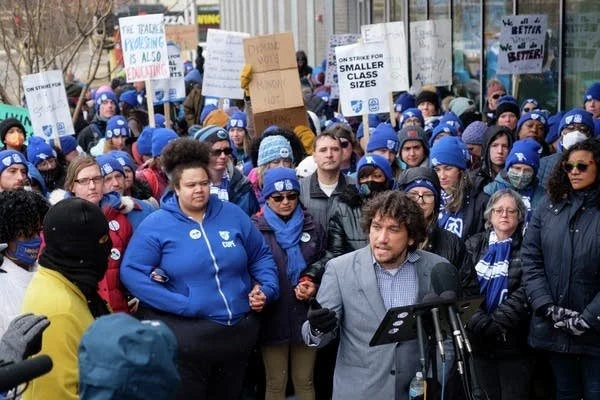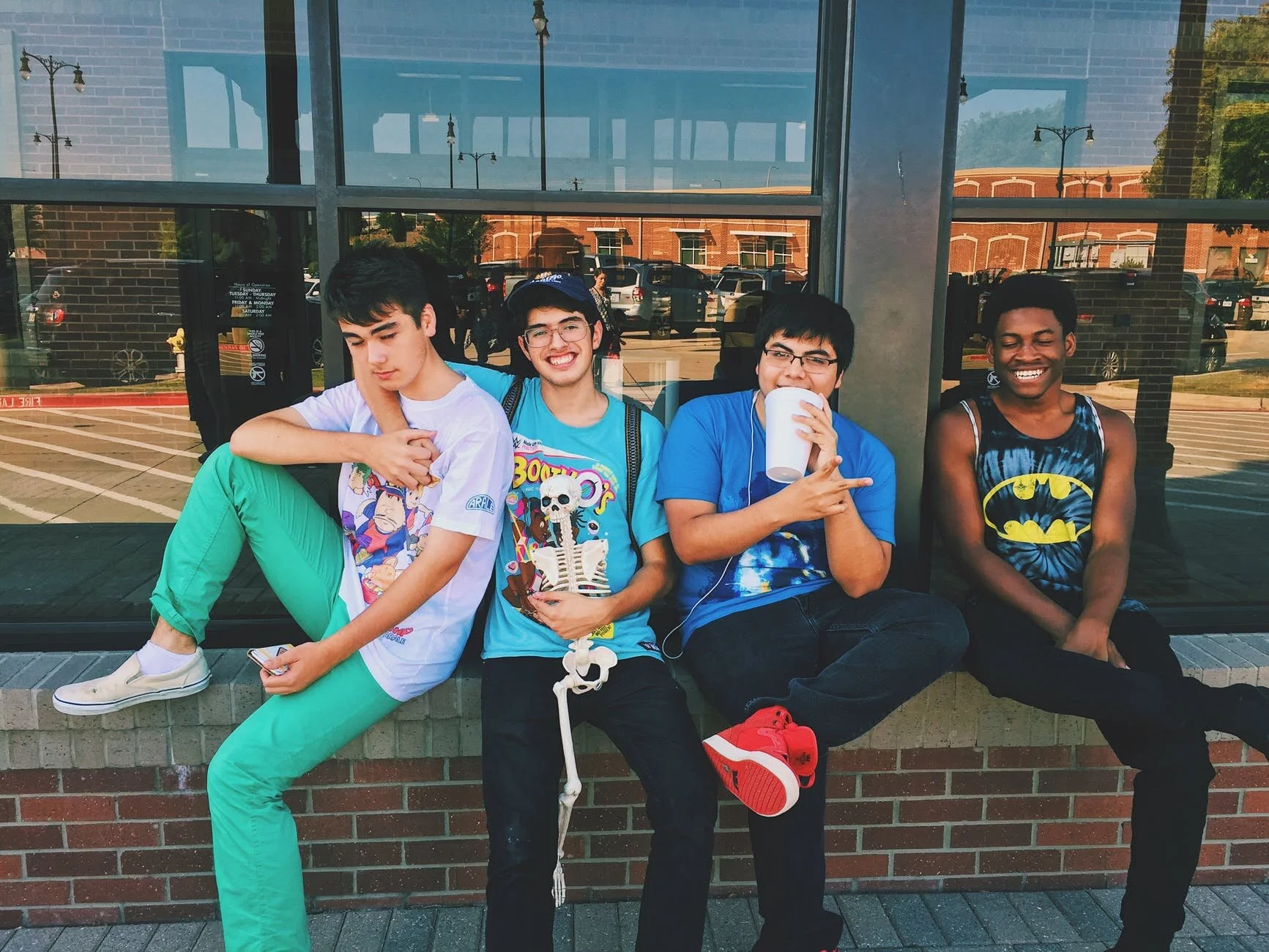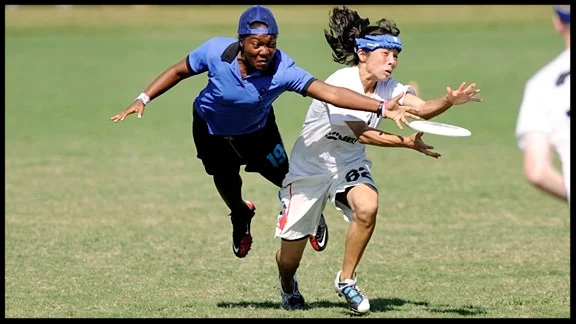Ep. 138: If We Want Equity, We Have to Put It in Contracts
EQ: To what extent would re-writing seniority clauses in teacher union contracts promote retention of educators of color and better serve our students?
In this episode of IWL, we are joined by Chris Stewart, the Chief Executive Officer of brightbeam, to discuss the recent change in the Minneapolis Teacher Union contracts. Chris was part of the first campaign to protect Black teachers (and other teachers of color) back in the early 2000s when he was on the school board. We discuss what this current provision in the contract means, including implications for other school districts. More importantly, we learn key contextual information behind this provision and how Black educators are fighting for their right to stay and teach the diverse body of students in the Minneapolis school district.
To learn about Chris’ work check out his website Citizen Stewart and follow him on Twitter @citizenstewart
Related Links:
Do Your Fudging Homework:
Hope/Megan: Follow @citizenstewart for some thought provoking tweets
Chris:
Support the local NAACP chapter fighting for Black educators
Write to the union president Greta Callahan and tell her you support the protection for educators of color
Find a group of friends to learn more about the situation facing Minneapolis educators of color. Read together, discuss and consider how it relates to your local context.
Ep. 113: Equipping Young People To Lead
EQ: How are young people around the world being equipped to address important social issues of our times?
Guest: Alisara (Ally) Christensen is from Bangkok, Thailand and the Jump! Foundation
Ally shares her experiences growing up in international schools and her passion for youth development. The Jump! Foundation offers a range of hands-on, experiential workshops to empower and equip students for exploring social issues, and specifically increasing their awareness on diversity, equity and inclusion. Although surprising for some, these conversations are somewhat new in international education. However, with access to technology and social media conversations about race and justice are now coming to the forefront of the conversation. We also explore the ever-evolving language around these issues of opportunity access. We finish the episode discussing the importance of having youth be the drivers of the conversation and bringing them along for the work rather than doing the work of change for them.
Resources:
Think Again by Adam Grant
Racial Equity Tools (Youth Activism & Intergenerational Work)
Dare to Lead by Brene Brown
Do Your Fudging Homework:
Hope - Read the sources above
Megan - Change or Die, Alan Deutschman
Ally - Any Podcast with Brene’ Brown, Adam Grant, Dare To Lead - Aiko Bethea
Ep. 71: Where's the Discourse on My Students? An Interview on Special Education with Monise Seward
EQ: How do we create systems that support ALL learners with a specific focus on supporting students with disabilities?
Guest: Monise Seward is a 6th grade math and science special education teacher in Georgia, a student advocate, an IEP consultant, and the author of the blog (re)Birth of a Teacher.
Monise begins by sharing her story of what brought her into education and why she chose to work in the world of special education. Even in 2020, special education is viewed as a “place” rather than services. Misconceptions of the purpose of the services has led to few changes in the system over the years. The structure of our schools is stagnant---teachers aren’t receiving the supports and ongoing training they need to provide fully services to their students. Simultaneously, parents and students need to be trained on advocacy. Monise calls out K-12 education as a system which is ignoring elements of the law and refusing to provide the services students need and deserve. As an IEP consultant, Monise developed a resource “A Parents’ Guide to Being in the Driver’s Seat”. Additionally, listeners should read her ideas on her blog including, Supporting Students With Learning Disabilities During a School Shut down and Virtual Learning Cannot Support the Needs of Students with IEPs
If you want to learn more about Special Education:
Sources for Understanding Impact of COVID-19:
Washington Office of Public Instruction Special Education Guidance for COVID-19
6 Ways to Support Students with Disabilities during COVID-19 School Closures
Champagne & Real Pain:
🥂 Special education teachers working under impossible conditions to renew their IEPs this year. For those who don’t know, IEPs have to be renewed yearly and involve families in meetings, which has been made exceptionally difficult by the pandemic. Special education is a right and this work is not optional.
🥂Gen Ed teachers who reach out to Monise asking specific questions so they can be a better teacher to their students!
🥂Karen Pelander (at Clover Park HS) and Roberta Whitesell (Lincoln HS)
👎🏻 All the educators who claim to want social justice classrooms but don’t actively pursue ways to make their curriculum/instruction better for special education students
👎🏻 Don’t ring a bell every time you are doing something you’re supposed to do. Just do it.
Do Your Fudging Homework:
Hope: No homework!
Monise: Reach out ot SpEd co-teachers. Ask your partner, “what are we going to do different next year?” Consider them your colleague and partner together.
Annie: Educate yourself on issues in special education
Find Monise on Twitter @MoniseLSeward
Follow us on Twitter @IWL_Podcast or Facebook: Interchangeable White Ladies Podcast
Lastly, don’t forget to pick up your copy of The Body is Not an Apology for #readlessbasic book club
Ep. 64: Why We ALL Need an Equity Literacy Framework
Today’s episode is extra special to us as we get to chat with two incredible educators who are shaping the profession through their interrogation of the personal and professional ways educators perpetuate white cultural norms in schools.
Our essential question is: How can we “learn to be a threat to inequity in our spheres of influence” in 2020?
Guests: Katy Swalwell, Associate Professor of Social & Cultural Studies in the School of Education at Iowa State University, and Paul Gorski, founder of Equity Literacy Institute and EdChange.
We first heard about the equity literacy framework from our guest Marquita Prinzing in Ep 46: Don’t be a Passive Progressive Educator and were incredibly excited when Katy reached out to us to share how she was using the podcast with her pre-service teachers. We are incredibly grateful she and Paul were able to come on the show.
In this episode Katy and Paul describe how they came to this work, specifically unpacking the idea of equity literacy which “moves us beyond cultural competency.” They share how schools and districts are approaching this differently than a simple list of strategies and emphasize that this work is a mindset shift. We highly recommend that listeners spend some time with the Equity Literacy Institute directly.
Finally, we ask Paul to share the story behind his controversial tweet that calls out white liberalism.
Do Your Fudging Homework:
Hope: Read through the equity literacy framework and do a little audit on your life--start first with classroom (the place you have immediate control), then dept/school (larger circles of control).
Annie: follow Paul on Twitter, follow Katy even though she doesn’t tweet very much. Read their work and buy their book when it comes out.
Paul: Teaching Tolerance & New York Collaborative of Radical Educators (NYCORE), Teachers 4 Social Justice
Katy: Carter Center for Black History, Freeminds Free People, Paul Ortiz’s History Book, Dolly Parton's America, Dr. Noreen Naseem @NaseemRdz, NYCORE, Rethinking Schools, Zinn Education Project
Follow us on Twitter @IWL_Podcast or Facebook: Interchangeable White Ladies Podcast
Ep. 52: You're Not Innovating If You're Not Solving Problems
***NOTE TO LISTENERS: We recorded this episode at the start of summer. Apologies for anything that feels dated.
EQ: How can the ed tech industry work with schools, teachers, and within its own ranks to create equity?
Guest: Holly Morris is an educational technology innovator whose work over the last 10 years has focused on facilitating the creation of engaging learning environments at every point on the spectrum: Pre-K to higher ed. She studied law at Berkeley and holds an MA in Education Policy from the University of Washington.
Holly explains the meaning of ed tech - technology solutions that help schools on the back end (administrative tasks, payroll, etc.) and the front end (teacher, student, and classroom tools). She shares her experience with Global Voice - a tech platform to help all the stakeholders in the ELL system - and equity work within the tech sector, including racial and gender inclusion. Holly also drops some knowledge about how innovative educational technologies are funded, including through private grants and philanthropy (it’s expensive to fail!). She makes projections for the future of ed tech and emphasizes the importance of developing technology that serves users and their specific needs within schools.
Champagne and Real Pain:
Champagne - we want to raise a glass/ pour one out for...
All the educators who are in the middle of their summer break. We know you won’t slow down - you’re probably at Target or at school and on Teachers Pay Teachers right, don’t lie - but it’s summer. Cheers!
Holly - open schools (Charter Schools Commission)
Real Pain - we want to call one out for
Summer day camps that don’t let campers go inside when it’s 90+ degrees outside. Give those kids some shade! Like actual shade!
Do Your Fudging Homework:
Annie: Google search “assistive tech in education” and check out some of the amazing things people are creating to make learning more accessible for people with disabilities.
Hope: Global Voice website
Holly: check out IDEO popularized Design Thinking; Arizona State University Service Blue printing
Ep. 46: Don’t be a Passive Progressive Educator
EQ: How are education association leading anti-racist work in education?
Guest: Marquita Prinzing---NBCT, elementary school teacher, mother of a 3 and almost 6 yr old. Director of SEA Center for Racial Equity
In this episode we discuss the role of teachers and unions in leading anti-racist work. We define equity literacy and the ways in which white teachers need to develop their own racial literacy instead of fumbling in their pseudo-wokeness or expecting teachers of color to carry the burden. We also wrestle with what it means to be unapologetic to our students of color.
Resources to explore:
Defining Equity Literacy (equity and inequity; justice vs. injustice)--Paul Gorsky
Families of Color, Seattle
Do Your Fudging Homework:
Annie: Dear White Teacher: 13 Books to Read on Racial Literacy by Bethany M. Edwards at Biracial Bookworms
Marquita: Check out SEA-Racial.Org; Tracy’s work at Teacher Activist.Com; Katlyn Kamala Jenkins Colorful Pages.Org
Don’t forget to subscribe to Channel 253
Ep. 42: Equity is Not the Outcome
EQ: What does equity look like, sound like, and feel like within complex organizations?
Guest: Desiree Finch, Leadership Development, Union Organizer, and Pierce Co Manager for Fuse WA.
“As Fuse’s Pierce County Organizer, Desiree’s mission is to build leaders to resist Trump’s agenda, lead efforts to clean up our state’s upside-down tax code, and help progressives win back key local offices. Desiree will also play a leading role in implementing Fuse’s racial equity plan by enabling Fuse to become a strong ally with underrepresented communities in Pierce County."
In this episode we discuss the notion of organization and development, including industrial psychology. Desiree compares and contrasts equity work in WA state vs other states, specifically drawing on her experience in union organizing. Lastly, we chat about how to maintain hope in the Trump era.
Do Your Fudging Homework
Annie: This is primarily for educators, but could be really useful to anyone confronting racism in the workplace. Seattle Public Schools has a Racial Equity Analysis tool, and it serves as almost like an environmental impact statement, but for actions that may cause inequity or broaden the opportunity gap and how to avoid those outcomes. It’s not totally comprehensive, but it’s a good start.
Desiree: desiree@fuse.org; go to org to do equity training---get consultancy find money and hire someone such as Archer Consulting
Ep. 19: Twice As Much To Be Considered Half As Good
EQ: How are women’s athletics treated differently than men’s athletics and why does the difference matter?
Guest: Maya Smorodinsky, English Professor at Shoreline Community College and Ultimate Frisbee aficionado.
From basic rules to the difference between "mixed" and not-mixed leagues, Maya breaks down the mysterious world of ultimate frisbee. Most importantly, we talk about the relationship between the sport and social justice including discussing the privilege of male athletes in creating space for sports like ultimate (pro leagues), unconscious bias on the field (you can’t get better if no one passes to you), and how all-women leagues develop leadership. Furthermore, we realize that Ultimate is a metaphor for education!
Some things to read:
- Ultimate for Dummies
- Equity in Mixed Ultimate
- Age Up in South Seattle: athletic and leadership empowerment for youth of color
- The Sky is Red documentary; Follow on Twitter @skyisredfilm
- Upwind Ultimate
Guilty-favesies:
- Annie: frozen packaged food! Terrible for the environment, but so convenient.
- Hope: Vampire Diaries. Irresistible TRASH.
- Maya: consumerism. Also, television!
Do Your Fudging Homework:
- Hope: go look up some of the great resources and information Maya brought to share.
- Annie: “We Must Change the Narrative Around Women’s Sports” by Sally Bergeson at Outdoor Magazine.
- Maya: donate to Age Up!








